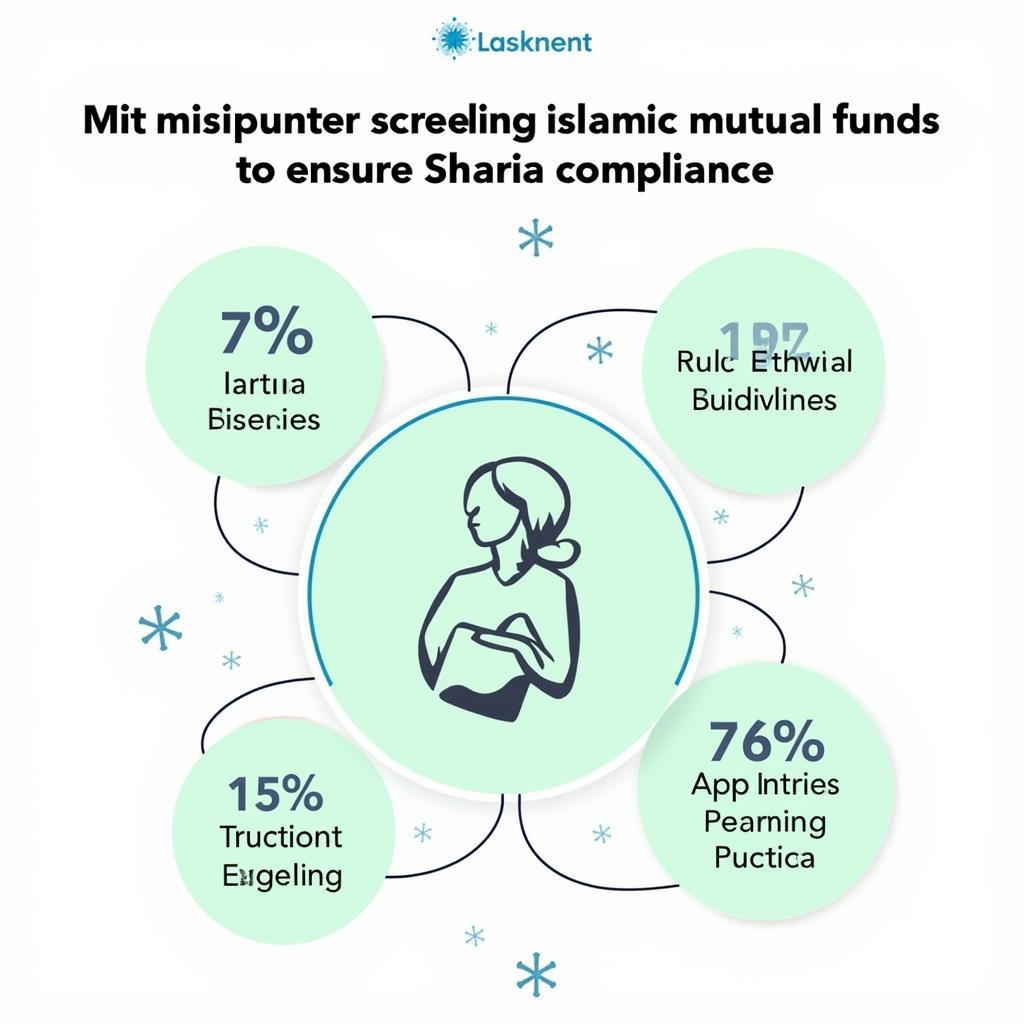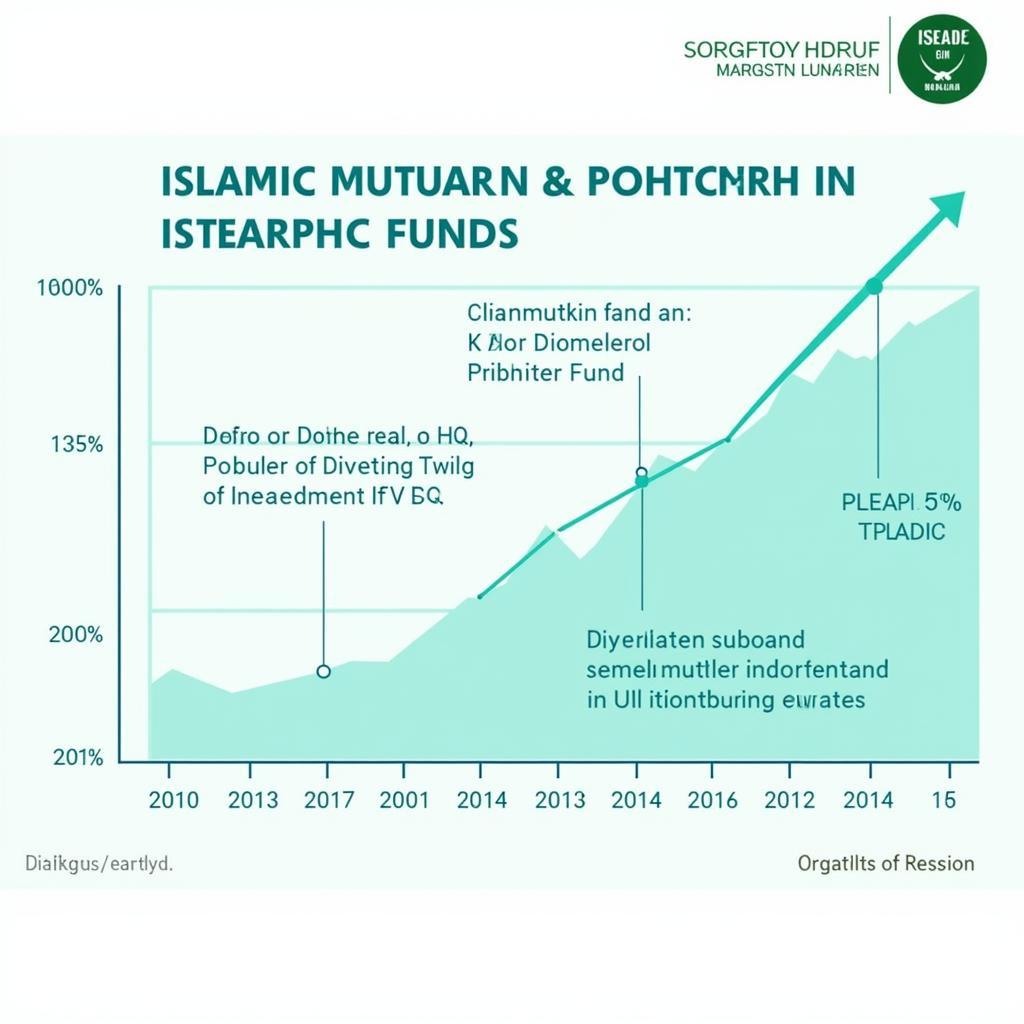Islamic mutual funds have been gaining significant traction in Pakistan, offering a Sharia-compliant way to invest in the stock market. These funds adhere to Islamic principles, avoiding investments in industries considered haram, such as alcohol, tobacco, and gambling. Instead, they focus on businesses that align with Islamic values, making them an increasingly popular choice for ethical and faith-based investors.
Understanding Islamic Mutual Funds
Islamic mutual funds function similarly to conventional mutual funds, pooling money from multiple investors to invest in a diversified portfolio of assets. However, they differ significantly in their underlying principles and investment criteria.
Here are some key features of Islamic mutual funds:
- Sharia Compliance: All investments are screened by a board of Islamic scholars to ensure they meet the criteria outlined in Islamic finance principles.
- Avoidance of Riba: Investments in interest-bearing instruments are strictly prohibited.
- Focus on Halal Industries: Funds prioritize investments in companies operating within permissible sectors such as healthcare, technology, and infrastructure.
 Islamic Mutual Fund Screening Process
Islamic Mutual Fund Screening Process
Benefits of Investing in Islamic Mutual Funds in Pakistan
Islamic mutual funds offer a compelling investment avenue for a variety of reasons:
- Ethical Investing: They provide individuals and institutions a way to grow their wealth in line with their faith and values.
- Professional Management: Funds are managed by experienced professionals who make investment decisions based on thorough research and analysis.
- Diversification: Investing in a mutual fund allows access to a basket of assets, reducing risk compared to investing in individual stocks.
Types of Islamic Mutual Funds Available in Pakistan
The Islamic finance industry in Pakistan offers various types of mutual funds catering to different risk appetites and investment goals:
- Equity Funds: Invest primarily in stocks of Sharia-compliant companies listed on the stock exchange.
- Money Market Funds: Offer short-term investment options in Sharia-compliant instruments like Murabaha and Sukuk.
- Fixed Income Funds: Invest in Sukuk (Islamic bonds) issued by governments and corporations.
- Balanced Funds: Combine equity, fixed income, and money market instruments to provide a balanced portfolio.
 Growth of Islamic Mutual Funds in Pakistan
Growth of Islamic Mutual Funds in Pakistan
How to Choose an Islamic Mutual Fund
Selecting the right Islamic mutual fund requires careful consideration:
- Investment Goals: Define your financial objectives – are you looking for capital appreciation, regular income, or a combination of both?
- Risk Tolerance: Assess your comfort level with market fluctuations and choose a fund that aligns with your risk appetite.
- Fund Performance: Review the historical performance of the fund, considering factors like returns, volatility, and consistency.
- Expense Ratio: Compare the fees charged by different funds, as they can impact your overall returns.
The Future of Islamic Mutual Funds in Pakistan
The Islamic finance sector, including Islamic mutual funds, is experiencing robust growth in Pakistan. Factors such as increasing awareness, demand for ethical investing, and supportive government policies are contributing to this positive outlook.
“We are witnessing a growing segment of investors in Pakistan who are actively seeking Sharia-compliant investment avenues. Islamic mutual funds are well-positioned to capitalize on this trend.” – Ahmed Hassan, Head of Islamic Finance at a leading Pakistani bank.
 Pakistani Investors Choosing Islamic Funds
Pakistani Investors Choosing Islamic Funds
Conclusion
Islamic mutual funds offer a compelling opportunity for individuals seeking to grow their wealth in accordance with Islamic principles. With their ethical framework, professional management, and diverse investment options, these funds are poised to play an increasingly important role in the Pakistani financial landscape. If you are looking for a Sharia-compliant way to participate in the capital market, Islamic mutual funds are certainly an avenue worth exploring.
FAQ
1. What is the minimum investment amount for Islamic mutual funds?
The minimum investment amount varies depending on the fund and the asset management company. However, many funds have relatively low minimum investment thresholds, making them accessible to a wide range of investors.
2. Are Islamic mutual funds only for Muslims?
While Islamic mutual funds are designed to comply with Islamic principles, they are open to investors of all faiths and backgrounds who are interested in ethical and socially responsible investing.
3. How are Islamic mutual funds taxed in Pakistan?
The tax implications of investing in Islamic mutual funds are similar to those of conventional mutual funds. It’s advisable to consult with a financial advisor to understand the specific tax implications based on your individual circumstances.
Need further assistance? Contact us at:
Phone Number: +923337849799
Email: [email protected]
Address: Dera Ghazi Khan Rd, Rakhni, Barkhan, Balochistan, Pakistan.
Our customer service team is available 24/7 to answer any questions you may have about Islamic mutual funds.